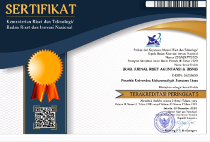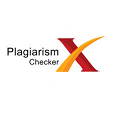Impelementasi RI 4.0 Dengan Adopsi Extensible Business Reporting Language (XBRL) dan Pengaruhnya Terhadap Audit Reporting Lag di Bursa Efek Indonesia Tahun 2016-2020
Abstract
Keywords
Full Text:
PDFReferences
Aksoy, M., Yilmaz, M. K., & Topcu, N. (2021). The impact of ownership structure , board attributes and XBRL mandate on timeliness of financial reporting : evidence from Turkey. https://doi.org/10.1108/JAAR-07-2020-0127
Bamber, E. M., Bambet, L. S., & Schoderbek, M. P. (1993). Audit structure and other determinants of audit report lag: An empirical analysis. Auditing, 12(1).
Chen, H., & Li, F. (2013). Analysis the Impact of XBRL in Chinas Capital Market Using Methods of Empirical Research. Research Journal of Applied Sciences, Engineering and Technology, 5(5), 15211527. https://doi.org/10.19026/rjaset.5.4898
Harahap, K., Rumondang, T., Putra, P. D., & Winata, J. A. (2021). Integrating XBRL Technology Into Accounting Curriculum: A Survey of Accounting Lecturers in Medan City. Proceedings of the International Conference on Strategic Issues of Economics, Business and, Education (ICoSIEBE 2020), 163(ICoSIEBE 2020), 8997. https://doi.org/10.2991/aebmr.k.210220.017
Margaretta, S., & Soepriyanto, G. (2012). Penerapan IFRS Dan Pengaruhnya terhadap Keterlambatan Penyampaian Laporan Keuangan: Studi Empiris Perusahana Manufaktur di Bursa Efek Indonesia Periode Tahun 2008-2010. Binus Business Review, 3(2), 993. https://doi.org/10.21512/bbr.v3i2.1370
Qin, J.; Liu, Y.; Grosven, R. 2016. A Categorical Framework of Manufacturing for Industry 4.0 and Beyond. Procedia CIRP 2016, 52, 173178.
Ra, C.-W., & Lee, H.-Y. (2018). XBRL Adoption, Information Asymmetry, Cost of Capital, and Reporting Lags. IBusiness, 10(03), 93118. https://doi.org/10.4236/ib.2018.103006
Ruppert, T.; Jasko, S.; Holczinger, T.; Abinyi, J. (2018). Enabling Technologies for Operator 4.0: A Survey. Appl. Sci. 2018, 8, 1650.
Saputro, B. R. W., & Achjari, D. (2020). Pengaruh Penggunaan XBRL Terhadap Audit Delay pada Industri Keuangan dan Non-Keuangan di Indonesia. Jurnal Teknologi Dan Informasi JATI.
Wizni, T. (2017). Dampak Pengadopsian Extensible Business Reporting Language (XBRL) Pada Penyajian Laporan keuangan Perusahaan Perbankan Terhadap Asimetri Informasi Di Bursa Efek Indonesia. Universitas Negeri Medan.
Zhong, Y.R.; Xu, X.; Klotz, E.; Newman, S.T. (2017). Intelligent Manufacturing in the Context of Industry 4.0: A Review. Engineering 2017, 3, 616630.
DOI: https://doi.org/10.30596/9436




